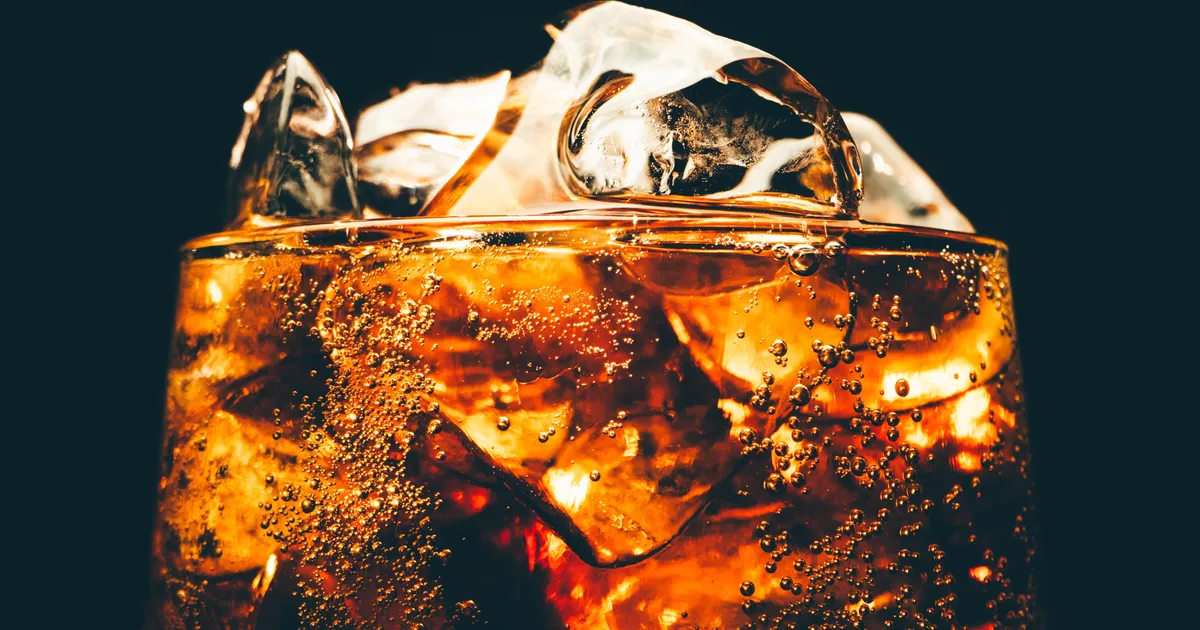
Coca-Cola has announced it’s releasing a new Coke product this fall that’s sweetened with cane sugar rather than high-fructose corn syrup. The announcement followed a July Truth Social post in which President Donald Trump claimed he convinced Coke to change its product.
To be fair, we don’t know whether Trump thinks cane sugar just tastes better, or whether he wanted to improve Coke’s nutritional profile, or if the decision was driven by political reasons. But regardless, this move has been hailed as a victory by Health and Human Services Secretary Robert F. Kennedy Jr. and his Make America Healthy Again Commission.
But is cane sugar really any better than high-fructose corn syrup (HCFS), from a nutritional perspective? The evidence strongly points to no.
Advertisement
Here’s why: While HFCS definitely doesn’t do any favors for human health, neither does cane sugar. Too much added sugar — regardless of which type or what food it’s in — can cause spikes in blood sugar levels and has been linked with many different chronic health conditions, from type 2 diabetes to heart disease and obesity. Soda, which is loaded with added sugars, is an unhealthy food choice whether it’s sweetened with high-fructose corn syrup or cane sugar.
“Replacing cane sugar with high-fructose corn syrup does not have any meaningful effect on health — including blood pressure, glucose metabolism or any measure of cardiometabolic health,” said Maddie Pasquariello, a New York City-based registered dietitian (RD).
Advertisement
Here’s what you need to know about cane sugar and HFCS — and why one isn’t really any healthier than the other, with expertise shared by registered dietitians.
What’s the difference between high-fructose corn syrup and cane sugar?
From a chemistry standpoint, high-fructose corn syrup and cane sugar are both sugars, and they’re pretty similar, including containing the same number of calories — about 4 per gram.
Let’s start with cane sugar. As the name implies, cane sugar is made from the sugarcane plant, and is made up of sucrose, the most common type of sugar. Sucrose is formed through the joining of two simple sugars — glucose and fructose (both monosaccharides) — which makes it a disaccharide.
Advertisement
“Replacing cane sugar with high-fructose corn syrup does not have any meaningful effect on health.”
High-fructose corn syrup is a sweetener made from corn syrup. Nutritionally, HFCS is very similar to table sugar (sucrose), which is also made of glucose and fructose in roughly a 50/50 split. However, unlike sucrose, which is a disaccharide (where the two sugars are bonded together), HFCS contains glucose and fructose as individual monosaccharides. In high-fructose corn syrup, “the two are not bonded together and the ratio might be slightly different than 50/50 in the overall product,” Pasquariello said. Because of its sweetness, stability and low cost, HFCS is commonly used in the food industry, especially in sodas, packaged snacks, condiments and desserts.
Are there health benefits to consuming drinks made with cane sugar rather than high-fructose corn syrup?
Despite any claims you may have heard from cane sugar advocates — such as those calling high-fructose corn syrup poison, or suggesting it is uniquely harmful to the liver and more strongly linked to chronic illnesses like obesity and type 2 diabetes — there aren’t any benefits to consuming cane sugar rather than HFCS. Both sweeteners have similar effects on the body when consumed in similar amounts. “Your body cannot tell the difference once they are broken down and enter the bloodstream,” Pasquariello said. “Calorically, metabolically — it doesn’t matter.”
According to the FDA, high-fructose corn syrup isn’t any less safe in terms of how it’s metabolized by the body than cane sugar and other common sweeteners like honey. Some critics have blamed HFCS for rising obesity rates, pointing to a trend of rising obesity rates at the same time as increasing consumption of HFCS. But nutrition experts say that claim is unfounded. In the book “Unsavory Truth: How Food Companies Skew the Science of What We Eat,” nutritionist and public health expert Marion Nestle pointed out that while the increasing use of high-fructose corn syrup in the food supply occurred alongside increasing obesity rates, this is an association, but not necessarily a cause. “In reality, both sucrose and HFCS are sugars,” she wrote. “Both are best consumed in small amounts.”
Added sugars contain calories, but other than that they’re devoid of vitamins and minerals that support healthy bodily functioning. Consuming a beverage sweetened with 25 grams of added sugar from cane sugar has the same impact on the body as a beverage sweetened with 25 grams of added sugar from HFCS.
Advertisement
Research shows that when comparing cane sugar (sucrose) and high-fructose corn syrup, there aren’t significant differences in terms of the body’s metabolic or endocrine responses and adverse health outcomes like obesity. Because of this, removing HFCS from food production wouldn’t have a meaningful impact on the metabolism, health or obesity rates of Americans, explained RD Jaime Gnau, clinical assistant professor in the School of Health Sciences at Missouri State University.
“What makes a difference for health is your overall added sugar consumption on a long-term basis — not the source of the sugar,” Pasquariello said.
Simply put: swapping out high-fructose corn syrup for cane sugar likely isn’t going to benefit your health. But cutting back on sugar-sweetened beverages and limiting added sugars will — and this includes any form of sugar, from cane sugar or HFCS to agave, honey, maple syrup or coconut sugar.
Advertisement
“Switching to a beverage with less added sugar would be of much more benefit than changing the type of sugar in the drink,” said Kristine Dilley, a registered dietitian nutritionist (RDN) at The Ohio State University Wexner Medical Center.
Why does overall sugar intake matter?
According to the Dietary Guidelines for Americans, added sugars should be limited to less than 10% of someone’s daily caloric intake, which amounts to about 50 grams of sugar per day for someone who’s eating a 2,000 calorie diet. And that’s the upper limit — they actually recommend aiming for even less. Meanwhile, the American Heart Association suggests even stricter limits for added sugars — 24 grams per day for women and 36 grams per day for men.
20 Years OfFreeJournalism
Your SupportFuelsOur Mission
Your SupportFuelsOur Mission
For two decades, HuffPost has been fearless, unflinching, and relentless in pursuit of the truth. Support our mission to keep us around for the next 20 — we can’t do this without you.
We remain committed to providing you with the unflinching, fact-based journalism everyone deserves.
Thank you again for your support along the way. We’re truly grateful for readers like you! Your initial support helped get us here and bolstered our newsroom, which kept us strong during uncertain times. Now as we continue, we need your help more than ever. We hope you will join us once again.
We remain committed to providing you with the unflinching, fact-based journalism everyone deserves.
Thank you again for your support along the way. We’re truly grateful for readers like you! Your initial support helped get us here and bolstered our newsroom, which kept us strong during uncertain times. Now as we continue, we need your help more than ever. We hope you will join us once again.
Support HuffPost
Already contributed? Log in to hide these messages.
And added sugars add up quickly. Just a 12-ounce can of Coca Cola contains 39 grams of added sugars, and rarely is that the only sugar someone is consuming in a day. Added sugar is found in high amounts in all sorts of processed foods, from cereal to yogurt to condiments.
Advertisement
“Overconsumption of added sugar has negative outcomes for body weight, blood pressure, insulin sensitivity, and other cardiometabolic risk factors,” Pasquariello said. “The use of cane sugar in a sugar-sweetened beverage instead of HFCS doesn’t make it any less likely to be over-consumed.”
Of course sugar isn’t always a bad thing. “Sugar provides fast energy and is a great tool for endurance athletes to perform their best,” Gnau said. “The more active you are, the more energy you need.” Still, most Americans are consuming too much sugar and not moving enough. According to the CDC, just 1 in 4 Americans meet physical activity guidelines. And if you’re not moving enough and providing your body with a way to use energy from high added sugar intake, health risks rise, Gnau added.



